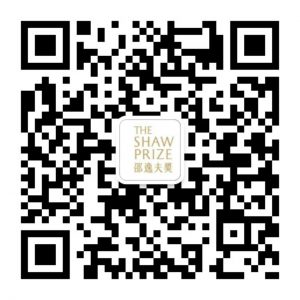for her work showing that localized double strand breaks in DNA stimulate recombination in mammalian cells. This seminal work was essential for and led directly to the tools enabling editing at specific sites in mammalian genomes.
The Shaw Prize in Life Science and Medicine 2019 is awarded to Maria Jasin, Member at the Memorial Sloan Kettering Cancer Centre (MSK) and Professor at the Weill Cornell Graduate School of Medical Sciences, Cornell University, USA, for her work showing that localized double strand breaks in DNA stimulate recombination in mammalian cells. This seminal work was essential for and led directly to the tools enabling editing at specific sites in mammalian genomes.
We stand at a moment of great promise in the ability to modify the genomes of virtually all organisms on Earth using the precision tools of gene editing. In the near future, it will be possible to treat human and animal genetic diseases and to improve agricultural productivity by the introduction of specific changes at precise locations within chromosomes. The preferred tool of this revolution is called CRISPR/Cas9, and its development has been attributed to many investigators around the world. But, the origin of this technological advance relies upon a crucial discovery that was made by Maria Jasin in 1994 when she showed that the site-specific introduction of a double-stand break in a mammalian chromosome may be repaired by two different normal cellular process of recombination and chromosome end-joining.
Human chromosomes often undergo breakage due to agents that damage the DNA. It is critical to repair such breaks, to maintain genome integrity and to prevent mutations that can give rise to cancer. All organisms have the capacity to repair such breaks by a process called homologous recombination, which restores the continuity of the genome without introducing mutations. A non-homologous recombination process, called end-joining, often introduces mutations and thus is only used by a cell when homologous recombination is not possible. Maria Jasin pioneered genetic and physical assays for recombination in human cells and she was the first scientist to directly demonstrate the importance of both homologous recombination and non-homologous end-joining for repair of chromosomal breaks. Her discovery has important implications for both normal cellular function, embryonic development, fertility, and for the etiology of diseases such as cancer. In the course of this work, Dr Jasin demonstrated that breaks in chromosomes greatly increase the frequency of recombination at the site of the break. This important discovery laid the groundwork for efficient modification of mammalian genomes by site-specific nucleases, an approach that is currently being widely exploited for gene therapy and basic research.
Maria Jasin was born in 1956 in Detroit, Michigan, USA and is currently Member, Memorial Sloan Kettering Cancer Center (MSK) and Professor at the Weill Cornell Graduate School of Medical Sciences, Cornell University, USA. She obtained her Bachelor’s degree in Biology from the Florida Atlantic University, USA in 1978 and received her PhD in Biochemistry from the Massachusetts Institute of Technology, USA in 1984. She was a Postdoctoral Fellow at the University of Zürich, Switzerland (1984–1985) and Stanford University, USA (1985–1990). She then joined MSKCC and Cornell University, where she was successively Assistant Professor (1990–1996), Associate Professor (1996–2000) and Full Professor (2000–). She is a member of the US National Academy of Sciences, the US National Academy of Medicine and the American Academy of Arts and Sciences.
